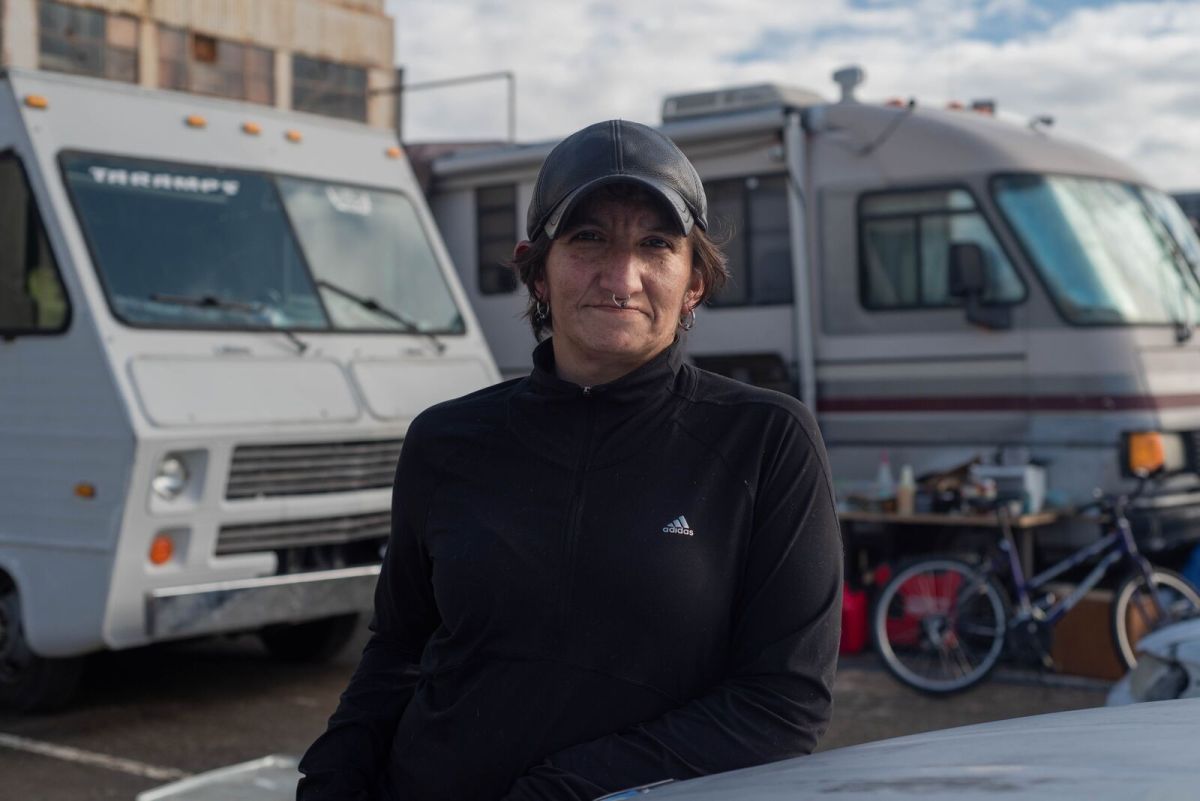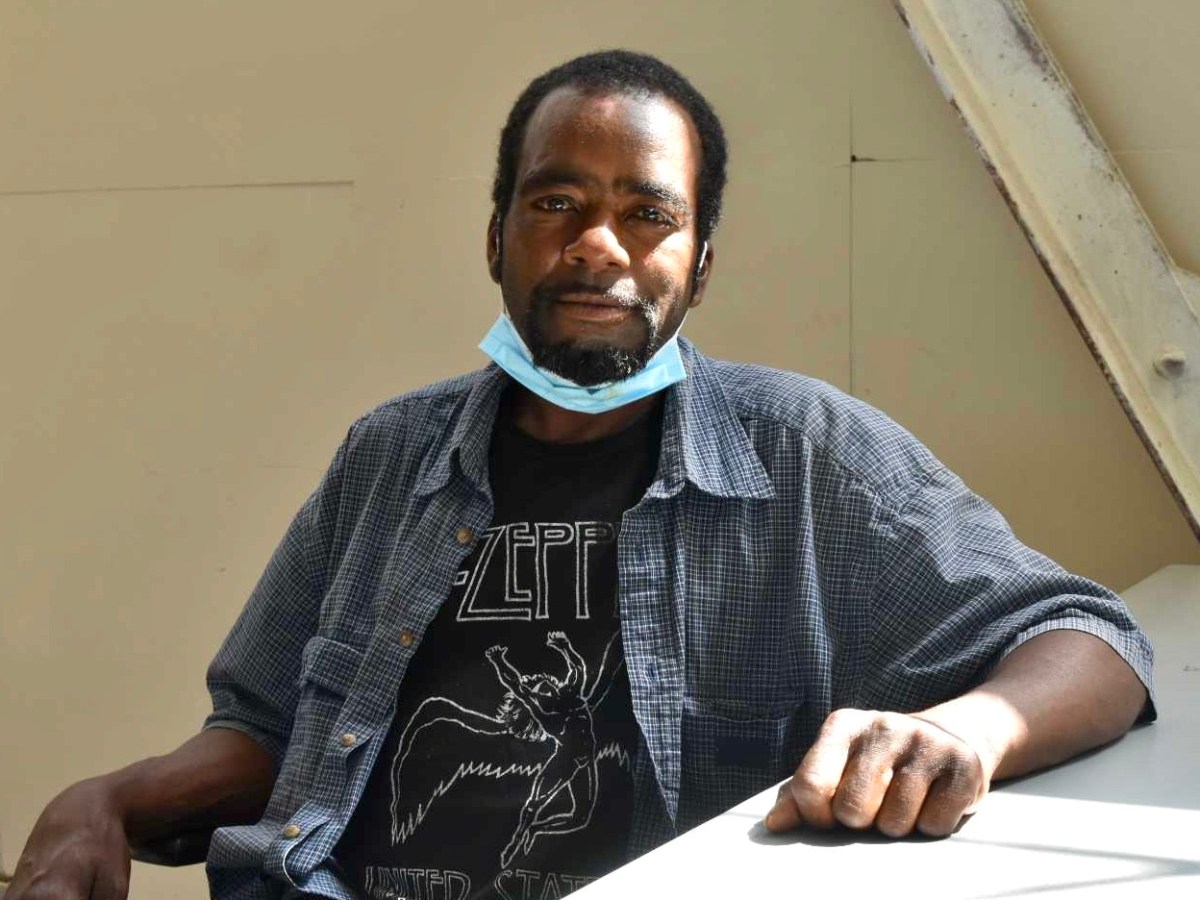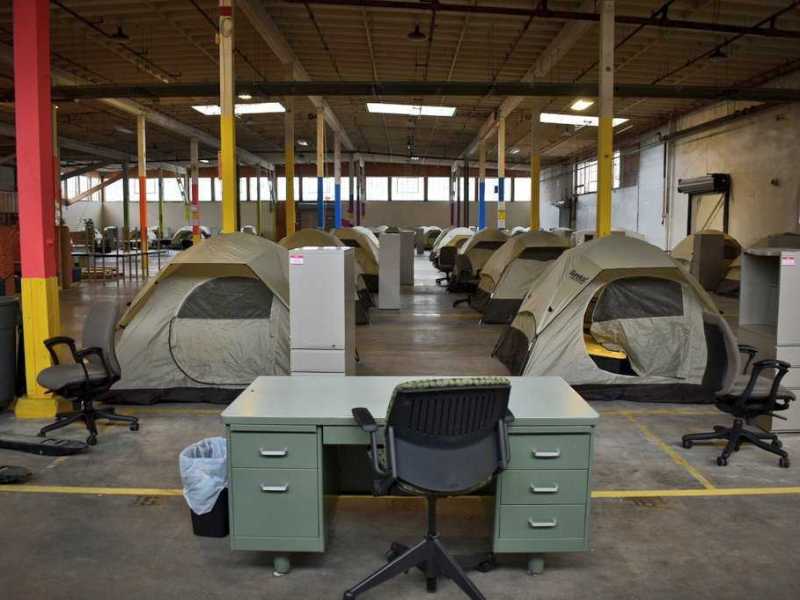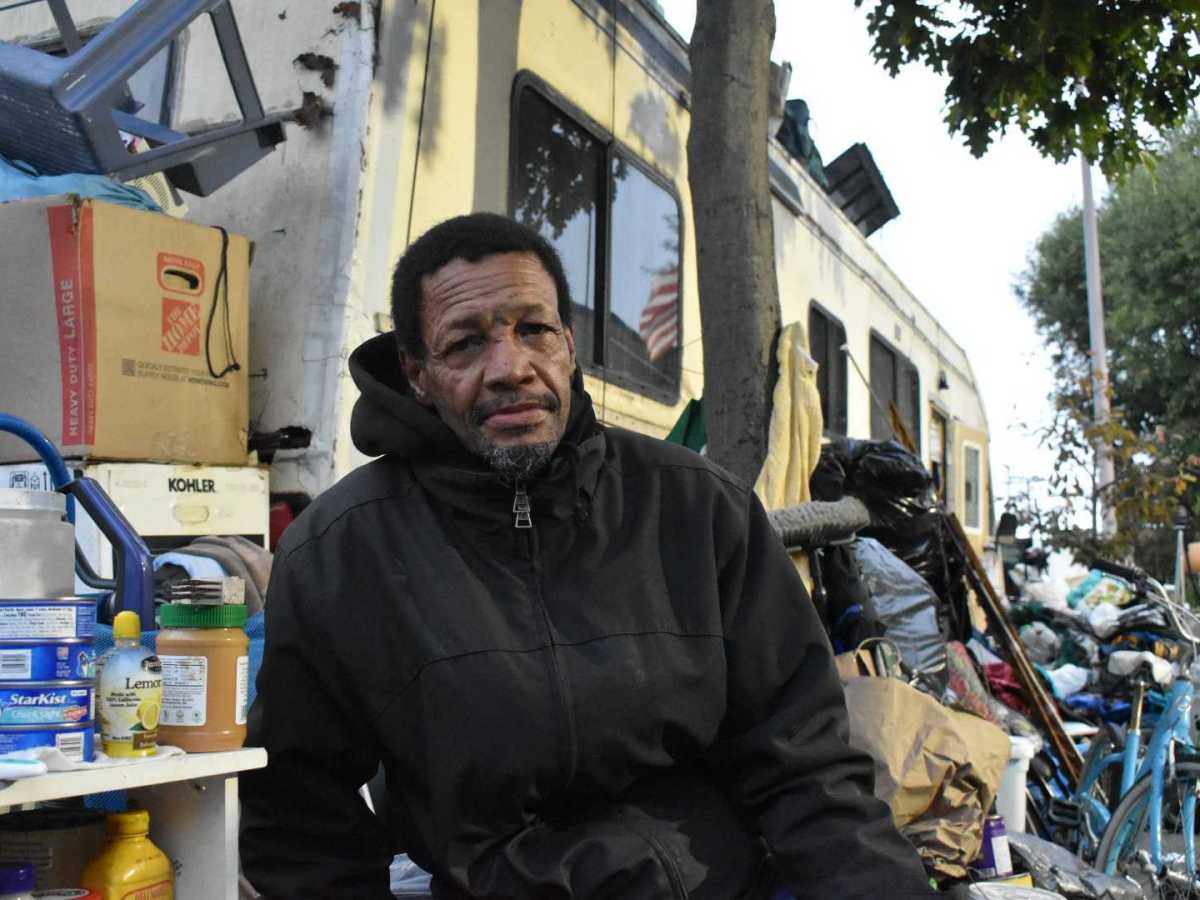
The year-old West Berkeley Horizon Transitional Shelter will move from Grayson Street to San Pablo Avenue under a new, five-year city lease with the Berkeley Inn, but its attached safe RV parking site is set to expire at the end of the year.
The City Council on Tuesday voted to enter into the lease, which would cost just under $1 million annually from Measure P funds for the first two years.
San Francisco-based REDCO Development owns the shelter’s current lot at 742 Grayson St. and has plans to build a life sciences hub on the property.
About 20 residents at the indoor Grayson shelter will transition to the Inn. Out of 150 people who accessed shelter services since July, around 30 were permanently housed and the majority are now in various stages of the housing progress.
Most people who came to Grayson previously lived in West Berkeley and downtown encampments. The remaining open spots at the Berkeley Inn will be filled through the same city outreach process as before, under the city manager’s office.
“Not one person from this move is going to return to homelessness — not one,” said Robbi Montoya, executive director of Dorothy Day House, which was awarded a continued contract Tuesday night to manage the program’s iteration at Berkeley Inn.
The future of the RV parking site — which operates much more independently, but occupies the same Grayson Street property — is much more uncertain.
SPARK (Safe Parking Respite and Kickstart) was added to the Horizon shelter last fall at the tail end of a years-long saga for RV residents in Berkeley and has been mostly lauded as a success by both its residents and city leaders.
Residents in the program could access services like mobile showers, and received about $1,500 to get their vehicles “road ready” and safe for inhabiting.
Amber Whitson, a longtime RV resident who previously lived at the Albany Bulb encampment and Eighth and Harrison, supports many of her neighbors at SPARK by fixing up their vehicles at the site. During a recent RV fire, she and others jumped into action to try and extinguish the flames.
“You can’t live in the Bay Area without having a lot of hustles, and I do a lot here,” said Whitson, who’s the de-facto mechanic for the SPARK site.
Though there are expenses involved — especially when residents have to fill up large gas tanks to move their RVs from spot to spot — Whitson said living in an RV is much more affordable than paying monthly rent in perpetuity.
“Turns out that what we have here is really awesome,” Whitson said, explaining that the safe parking site is much better than the uncertainty of citations, parking enforcement and safety concerns on the street. “We have a really solid community here.”
Dorothy Nolan and her partner Jose Jesus Guajardo Jr. live next to Whitson and are also concerned about moving back to the unpredictable schedule of parking citations and street life. Nolan said Guajardo Jr. has kept her safe in the years since she lost a Richmond home to a fire, and she began living in RVs.
“I wouldn’t have made it if it wasn’t for him, because I’ve never been in the streets before,” Nolan said. “Being agoraphobic, I stay in my home. I didn’t know how street life was, and he’s been helping me through it.”
Most residents at the SPARK site arrived from the unauthorized Eighth and Harrison RV encampment. The city had paused certain citation programs during COVID-19 shelter-in-place laws, but resumed enforcement when Horizon opened.
At the time, Berkeley Friends on Wheels activists raised major concerns that their RV community would be disrupted if they moved to a temporary site, which could then be closed.
They initially protested the move because inoperable vehicles at Eighth and Harrison would be left on the street, but the city later brought them liability waivers (saying the RVs would be towed at the end of the program if they weren’t operable) and a majority of those residents move to SPARK.
Some RV residents and small vehicles that weren’t allowed in the SPARK lot remained at the site afterward. That community is now also facing difficulty with parking citations, and pending moves.
Some who did move to SPARK accepted $250 incentives from the city to leave the site before it was renewed for two months this October. Those residents are now back to moving their vehicles daily on the streets, and Whitson said many are frustrated they didn’t remain.
Dorothy Day House was preparing to close the entire shelter in September before the City Council negotiated a lease extension with REDCO, and information was changing daily at the time.
“It was not meant to be deceitful — but I get the frustration, I do,” Montoya said. “What might have been worse is to let 25 RVs come back in there [after October], only to be displaced yet again.”
Mayor Jesse Arreguín said at council Tuesday that staff have been considering numerous options for possible sites to relocate the RV program. The city has not yet shared any information about the locations.
Berkeley Inn could be West Berkeley homeless service hub
The Berkeley Inn at 1720 San Pablo Street will be converted into the Dorothy Day House program by the end of the current lease on Dec. 31, 2022.
Most of the program will stay the same (barring the logistics of a new, non-warehouse location). Meals, case management, showers and laundry will be offered at the site, and Dorothy Day House will use a “harm reduction” model concerning drug use and addiction.
“We don’t encourage [drug use], but we don’t chastise you for doing it,” Montoya said. “And we will continually ask all the time if they’re interested in options.”
In many cases, Montoya said residents have agreed to addiction treatment programs, and Options Recovery Services typically arrives at their “doorstep” the same day to initiate the process.
Dorothy Day House also uses a system of “fire walks” hourly, 24/7, to check on clients and ensure those with extra needs, especially those struggling with mental health issues or drug addiction, are OK.
Montoya said this process will extend to the perimeter inside and outside Berkeley Inn, which will be staffed around the clock with at least two staff members on-site at all times. She hopes this will address some concerns from neighbors and local business owners, who raised concerns at Tuesday’s City Council meeting.
Moses Abughosh, the owner of adjacent Cafe Leila, said the eatery has had to cut its hours and close early in the afternoon because of safety issues on San Pablo Avenue. He said loitering passersby have damaged the restaurant’s tables and chairs and harassed patrons and employees.
He pressed the council for better safety options along with the lease Tuesday, emphasizing that businesses in the area have run out of options and feel like they have no one to call regarding rapid response to persistent issues.
“We just want to be safe. I don’t mind having neighbors there — we have a lot of homeless people come in and they’re wonderful,” Abughosh said. “But we’re not qualified to deal with drug addicts and people with mental issues. We’re not qualified to do that.”
West Berkeley Councilmember Rashi Kesarwani said Cafe Leila is an “anchor business” in the San Pablo Avenue corridor and that the city will undertake a “safety assessment” to determine what changes can support businesses in the area.
Montoya said erratic behavior on the streets that Abughosh and others have experienced is usually connected to unsheltered homelessness, where people are left on the streets with no support, “unhappy, desperate, cold and hungry.”
Having a shelter program with a host of resources would be the opposite of that, she said, and trained staff members at the site around the clock would be a helpful resource for the entire neighborhood.
“This is an access point,” Montoya said, explaining that Dorothy Day House has already been able to connect some unsheltered homeless residents in the San Pablo Avenue neighborhood with resources they didn’t have before. The organization manages multiple programs, including a drop-in shelter downtown.
“Will we be able to solve all their problems? No, but I think it’ll improve businesses’ relationship (with the community) in the sense that they’ll have someone to call,” she said.



